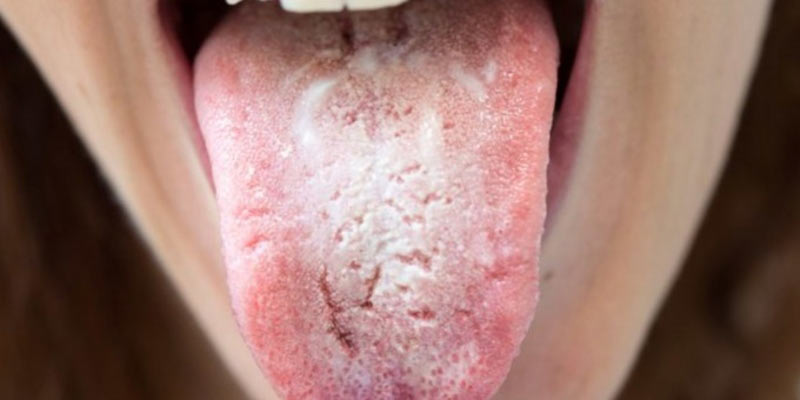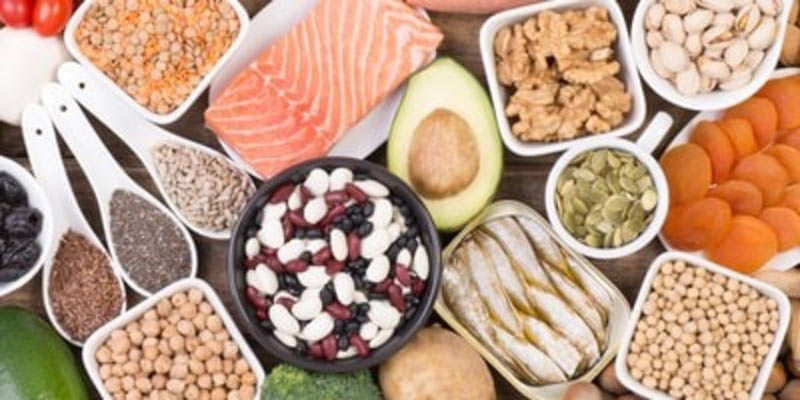Top Vegan-friendly Vitamin D Sources
Oct 09, 2023 By Madison Evans
Vitamin D is often known as the "sunshine vitamin," essential to human health. Although vitamin D is associated with bone health, it also supports calcium absorption, immune system function, and muscle health. Deficits in this vitamin can cause several health problems due to its importance. Everyone, including vegans, must consume enough. Many conventional vitamin D sources are animal-based. So, what are the best vegan vitamin D sources? Let us find out.
1. Sunlight
When we talk about vegan sources of vitamin D, sunlight is the show's star. It's nature’s way of supplying us with a crucial nutrient. Standing under the sun isn’t just about warming up or getting a tan. It's about allowing our body to produce an essential vitamin. Just a few minutes basking under the sun can significantly bolster our vitamin D levels.
The mechanism is fascinating: when the skin meets UVB rays from sunlight, it jumps into action and synthesizes vitamin D. Optimal times to soak up the sun are during midday, usually from 10 am to 3 pm, when the sun is shining the brightest. This is it if you’ve ever needed an excuse to take a short break and step outside.
However, sunshine varies. How much vitamin D your skin produces depends on skin tone, location, and season. Darker skin tones may need more sun to get the same vitamin D. Winter in a northern city limits sun exposure and vitamin D generation.
This leads to an essential consideration for vegans: when sunshine is sparse, how do you compensate? That's where our diet and, if necessary, supplements can step in as alternative sources of vitamin D for vegans.
2. Fortified Foods
In today's grocery aisles, many foods proudly boast their fortified status. This means that specific vitamins or minerals, like vitamin D, have been added to them. For those following a vegan lifestyle, these fortified products can be precious, acting as vital sources of vitamin D that vegan enthusiasts can rely on.
When we mention fortified foods, plant-based milks come to mind. Be it almond, soy, or rice milk, many of these alternatives to cow's milk are now fortified with vitamin D. But a word to the wise: always take a moment to flip the carton over and read the label. Confirming the added vitamin D is of vegan origin ensures you stay true to your dietary choices.
Breakfast cereals are another fantastic option. Vegan-friendly cereals with added vitamin D can be a morning game-changer. But, just like with plant milk, you'll want to inspect the label. Not all fortified cereals use vegan-friendly vitamin D, so it's worth double-checking.
3. Mushrooms

Mushrooms aren’t just tasty toppings or a key ingredient in vegan dishes. Some of them have an impressive trick up their sleeves. When exposed to sunlight or ultraviolet light during growth, certain mushrooms synthesize vitamin D, similar to human skin. Among these, maitake and shiitake mushrooms shine brightest. Mixing them into your meals adds taste and vitamin D. They fit easily into stir-fries, salads, soups, and other cuisines.
Next time you shop for produce, reconsider these mushrooms. Beyond fungus, they're powerful vegan vitamin D sources. In your diet, mushrooms can help you acquire a balanced intake of nutrients. Mushrooms differ in vitamin D content. Suppose you want to use them as your main vitamin. If so, vegans may benefit from vitamin D supplements or gummies to meet their daily needs.
4. Supplements
Choosing the appropriate supplement can alter everything, especially for people who lack natural vitamin D. Vegans need it more because many vitamins come from animals. Many must realize that typical vitamin D supplements often come from sheep's wool, making them unsuitable for a strict vegan lifestyle. Vegan sources of vitamin D in supplement form have become more prevalent thanks to increasing demand.
One of the trending choices is vitamin D gummies. These gummies have grown in popularity due to their taste and ease of consumption. They're beneficial for those who might forget to take traditional pills or for kids who are picky eaters. However, a word of caution: while they might be labeled as vitamin D gummies, not all are vegan-friendly. Some might contain gelling agents from animal-derived sources. Reading labels and ensuring they fit the vegan lifestyle is paramount.
5. UV-Treated Yeast
When you think of yeast, baking comes to mind. But here's something intriguing: UV-treated yeast stands out as one of the unique sources of vitamin D for vegans. It's not just about making your bread rise; this specially-treated yeast becomes a powerhouse of vitamin D when exposed to UV lights.
Add UV-treated yeast to your diet easily. Mix it into your favorite dishes or sprinkle it on top. It will taste better and boost vitamin D. Win-win! For vegans looking for diverse sources of vitamin D, vegan sources like UV-treated yeast offer both nutritional benefits and versatility in cooking.
6. Algal Oil

The wonders of the sea offer more than just scenic views. Algal oil, derived from specific algae, is a goldmine for those seeking vegan sources of vitamin D. This oil doesn't just stop at providing vitamin D; it's also loaded with omega-3 fatty acids, especially EPA and DHA, which are often hard to find in plant-based sources.
Algal oil shows how nature may provide nutrients for specific diets. Its dual benefits make it an excellent choice for individuals seeking all essential nutrients. Algal oil is becoming a popular vegan vitamin D alternative as more people discover its benefits. Algal oil can help vegans meet their nutritional needs as a supplement or in food.
Considerations and Recommendations
Daily Requirements
Nutritional demands vary by exercise level, health, and location. How much vitamin D you need is crucial. A short walk in the sun may be adequate for some, while others may need supplements or diet. Tracking intake and conducting blood testing can reveal vitamin D levels. If you require clarification, consult a doctor.
Choose Supplements Carefully
Many people turn to supplements like vitamin D gummies to fill nutritional deficiencies. They are easy to eat and worthwhile for folks with dietary restrictions. Just note that not all supplements are the same. Labels must be read. When buying vitamin D gummies or other products, verify vegan certifications and ingredient lists. Supplements should support a healthy diet.







